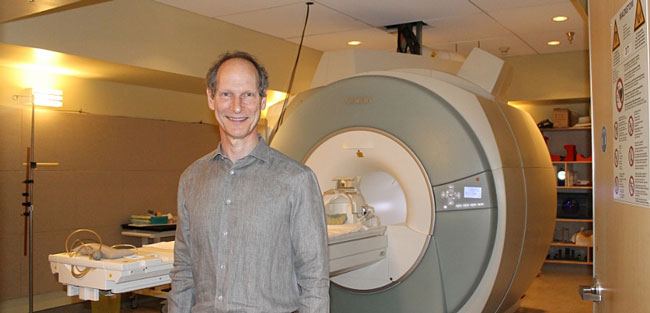McGill Scientist to Use $6.1M PMSA Award to Search for Markers of Change in Progressive MS
Written by |

In its effort to end progressive multiple sclerosis (MS), the International Progressive MS Alliance (PMSA) has awarded a $6.1 million grant to fund a research project led by Dr. Douglas Arnold with the Montreal Neurological Institute Hospital (MNI) at McGill University.
The multiyear grant is one of three Collaborative Network Award grants, totaling $18.4 million, given to international scientific teams under the organization’s mission of accelerating the pace of progressive MS research.
Arnold is leading a group of 16 researchers from The Netherlands, Switzerland, the U.K., and U.S. in a study titled, “Identifying a biomarker of disability progression for use in clinical trials.” Using magnetic resonance imaging (MRI), the researchers will work on identifying markers that signal MS progression in patients with progressive disease, a necessary step in the development of next-generation disease measurement tools.

A project led by Douglas Arnold of McGill University has been awarded $6.1 million to study markers in progressive multiple sclerosis. (Credit: Shawn Hayward/McGill Reporter)
Using these markers, the researchers will explore MRI as a tool capable of identifying the brain damage characteristic of progressive MS before it is evident to physicians. The work may also be used in evaluating proactive treatments for people with progressive MS whose symptoms are not yet clinically evident.
“There is an urgent need for effective therapies for progressive MS,” said Arnold in a news release. “This project will use sophisticated computerized MRI analysis techniques to develop MRI markers that can be used in early phase (phase 2) clinical trials for progressive MS. This will enable more efficient, less expensive clinical trials, lower the financial risk for drug companies to test potential therapies, and in so doing, facilitate the development of new drugs for progressive MS.”
“Finding answers for people with progressive MS is the top Alliance priority,” said Cyndi Zagieboylo, chair of the Alliance Executive Committee and president and CEO of the National MS Society (U.S.). “Answers will be found when we ensure that the best and brightest minds in the scientific community work together.”
The other two projects, detailed in an earlier report by Multiple Sclerosis News Today, will aim to identify molecules with potential therapeutic power in progressive MS (led by Gianvito Martino, MD, from the San Raffaele Hospital Milan, in Italy), and to identify potential therapies that target innate immune cells, associated with disease activity in MS (led by Francisco Quintana, PhD, at Brigham and Women’s Hospital in the U.S.).
Launched in 2012, the PMSA comprises 14 MS organizations in 12 countries, and is dedicated to funding research projects and in engaging patients, families, advocates, clinicians, and industry to improve the lives of those with progressive MS.
Unlike relapsing-remitting MS (RRMS), the most common type of the disease, there are no effective therapies for progressive MS. This form of MS is divided into two main categories: primary progressive MS (PPMS) and secondary progressive MS (SPMS). While up to 15 percent of patients are diagnosed with PPMS from the onset, SPMS develops in up to 65 percent of patients initially diagnosed with RRMS.


